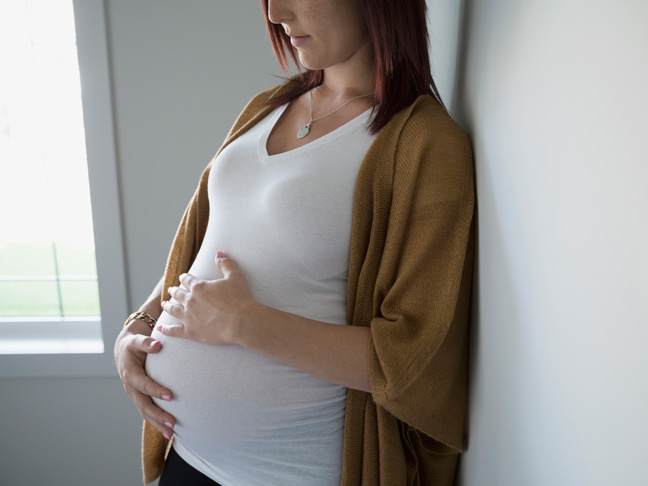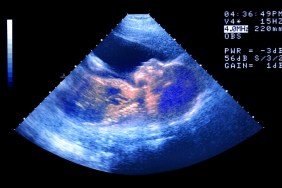No one ever tells you about the unpleasant problems you might have when going #2 during pregnancy. Like constipation. Or diarrhea. Or even mucus in stool. Let’s be honest: It’s not exactly dinner party conversation. Still, these digestive problems are all very normal. Pregnancy does a number on your gut, after all. Although they’re not cause for alarm typically, these symptoms are worth mentioning to your doctor. We asked Sherry Ross, MD, a Los Angeles-based ob-gyn and women’s health expert to explain why your gut goes harewire during pregnancy, when you should call your doctor, and what you can do to help prevent digestive problems.
Why does mucus in stool happen?
Blame the hormonal effects of progesterone, the iron and calcium in your prenatal vitamin, the changes in your diet, and the displacement of your intestines as your uterus expands for your wacky digestive system. As we mentioned, some pregnant women find they’re more constipated, while others seem to be going to the bathroom more often, and some women may see mucus in stool. “It’s usually nothing to worry about, especially if you’re dehydrated or constipated,” says Dr. Ross. “It’s just jelly-like material coming from the intestines and acting as a lubricant to help your body digest food, especially if you’re backed up.”
When should you call the doctor?
If the mucus is accompanied by other symptoms like diarrhea, bleeding, and/or lower abdominal pain, it might suggest a more serious problem, so you’ll want to call your ob-gyn. “Other more concerning causes could be irritable bowel syndrome, anal fissures, infection, or inflammatory bowel diseases like Crohn’s or Ulcerative Colitis,” says Dr. Ross.
What can you do to prevent mucus in stool and other tummy troubles?
If the mucus in stool is occurring infrequently, without accompanying symptoms, then there’s no cause for alarm. Still, it is a signal that your digestive system needs some encouragement. Dr. Ross suggests the following:
1. Drink 8-10 glasses of water a day. We know, you’re probably peeing every five minutes as it is, but water and fruit juice (like prune) will help regulate constipation.
2. Exercise. Daily physical exercise, like walking, can help prevent constipation because it aids in digestion.
3. Eat more fiber. Consuming more dietary fiber found in fruits, veggies, beans, and whole grains brings water to the intestines, softening your stool. If constipation is a real issue that’s not getting better with diet alone, ask your doctor about a fiber supplement.
4. Ask your doctor if you can take a stool softener. Dr. Ross encourages her patients to take a stool softener two times a day, throughout their pregnancy, to help bowel movements pass more easily.
More for Pregnant Moms:
- Discharge During Pregnancy: What’s Normal & What’s Not?
- Weird Pregnancy Aches & Pains That Are Totally Normal (& When to Call the Doctor)
- 6 Preeclampsia Signs That Often Get Overlooked
Photo: Getty








